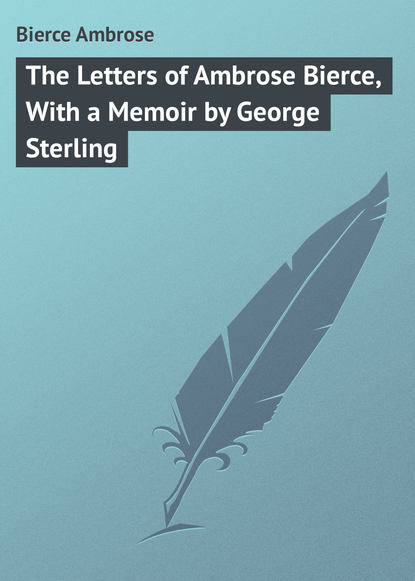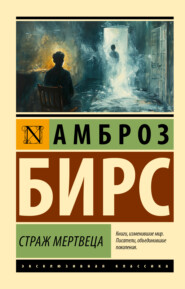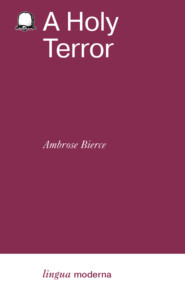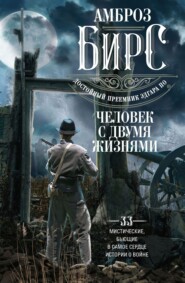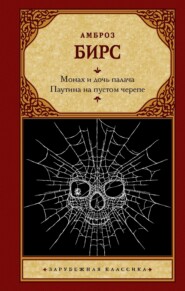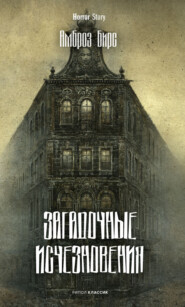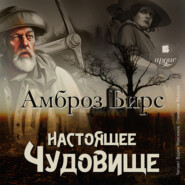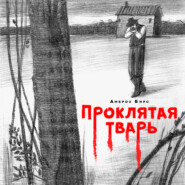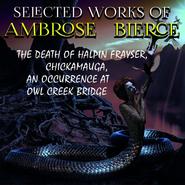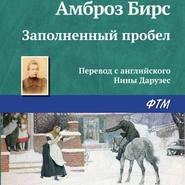По всем вопросам обращайтесь на: info@litportal.ru
(©) 2003-2025.
✖
The Letters of Ambrose Bierce, With a Memoir by George Sterling
Настройки чтения
Размер шрифта
Высота строк
Поля
Sincerely yours, Ambrose Bierce.
The Army and
Navy Club,
Washington, D. C.,
September 7,
1907.
My dear George,
I'm awfully glad that you don't mind Chamberlain's yellow nonsense in coupling Ella's name with yours. But when you read her natural opinion of your work you'll acquit her of complicity in the indignity. I'm sending a few things from Hearst's newspapers – written by the slangers, dialecters and platitudinarians of the staff, and by some of the swine among the readers.
Note the deliberate and repeated lying of Brisbane in quoting me as saying the "Wine" is "the greatest poem ever written in America." Note his dishonesty in confessing that he has commendatory letters, yet not publishing a single one of them. But the end is not yet – my inning is to come, in the magazine. Chamberlain (who professes an enthusiastic admiration of the poem) promises me a free hand in replying to these ignorant asses. If he does not give it to me I quit. I've writ a paragraph or two for the November number (too late now for the October) by way of warning them what they'll get when December comes. So you see you must patiently endure the befouling till then.
* * *
Did you notice in the last line of the "Wine" that I restored the word "smile" from your earlier draft of the verses? In one of your later (I don't remember if in the last) you had it "sigh." That was wrong; "smile" seems to me infinitely better as a definition of the poet's attitude toward his dreams. So, considering that I had a choice, I chose it. Hope you approve.
I am serious in wishing a place in Carmel as a port of refuge from the storms of age. I don't know that I shall ever live there, but should like to feel that I can if I want to. Next summer I hope to go out there and spy out the land, and if I then "have the price" (without sacrificing any of my favorite stocks) I shall buy. I don't care for the grub question – should like to try the simple life, for I have already two gouty finger points as a result of the other kind of life. (Of course if they all get that way I shan't mind, for I love uniformity.) Probably if I attempted to live in Carmel I should have asthma again, from which I have long been free.
* * *
Sincerely yours, Ambrose Bierce.
Army and Navy Club,
Washington, D. C.,
October 9,
1907.
My dear Morrow,
Whether you "prosper" or not I'm glad you write instead of teaching. I have done a bit of teaching myself, but as the tuition was gratuitous I could pick my pupils; so it was a labor of love. I'm pretty well satisfied with the results.
No, I'm not "toiling" much now. I've written all I care to, and having a pretty easy berth (writing for The Cosmopolitan only, and having no connection with Mr. Hearst's newspapers) am content.
I have observed your story in Success, but as I never never (sic) read serials shall await its publication in covers before making a meal of it.
You seem to be living at the old place in Vallejo Street, so I judge that it was spared by the fire. I had some pretty good times in that house, not only with you and Mrs. Morrow (to whom my love, please) but with the dear Hogan girls. Poor Flodie! she is nearly a sole survivor now. I wonder if she ever thinks of us.
I hear from California frequently through a little group of interesting folk who foregather at Carmel – whither I shall perhaps stray some day and there leave my bones. Meantime, I am fairly happy here.
I wish you would add yourself to the Carmel crowd. You would be a congenial member of the gang and would find them worth while. You must know George Sterling: he is the high panjandrum and a gorgeously good fellow. Go get thee a bungalow at Carmel, which is indubitably the charmingest place in the State. As to San Francisco, with its labor-union government, its thieves and other impossibilities, I could not be drawn into it by a team of behemoths. But California – ah, I dare not permit myself to remember it. Yet this Eastern country is not without charm. And my health is good here, as it never was there. Nothing ails me but age, which brings its own cure.
God keep thee! – go and live at Carmel.
Sincerely yours, Ambrose Bierce.
The Army and
Navy Club,
Washington, D. C.,
October 29,
1907.
James D. Blake, Esq.,
Dear Sir:
It is a matter of no great importance to me, but the republication of the foolish books that you mention would not be agreeable to me. They have no kind of merit or interest. One of them, "The Fiend's Delight," was published against my protest; the utmost concession that the compiler and publisher (the late John Camden Hatten, London) would make was to let me edit his collection of my stuff and write a preface. You would pretty surely lose money on any of them.
If you care to republish anything of mine you would, I think, do better with "Black Beetles in Amber," or "Shapes of Clay." The former sold well, and the latter would, I think, have done equally well if the earthquake-and-fire had not destroyed it, including the plates. Nearly all of both books were sold in San Francisco, and the sold, as well as the unsold, copies – I mean the unsold copies of the latter – perished in the fire. There is much inquiry for them (mainly from those who lost them) and I am told that they bring fancy prices. You probably know about that better than I.
I should be glad to entertain proposals from you for their republication – in San Francisco – and should not be exacting as to royalties, and so forth.
But the other books are "youthful indiscretions" and are "better dead." Sincerely yours, Ambrose Bierce.
The Army and
Navy Club,
Washington, D. C.,
December 28,1907.
Dear George,
* * *
Please send me a copy of the new edition of "The Testimony." I borrowed one of the first edition to give away, and want to replace it. Did you add the "Wine" to it? I'd not leave off the indefinite article from the title of that; it seems to dignify the tipple by hinting that it was no ordinary tope. It may have been witch-fermented.
I don't "dislike" the line: "So terribly that brilliance shall enhance"; it seems merely less admirable than the others. Why didn't I tell you so? I could not tell you all I thought of the poem – for another example, how I loved the lines:
"Where Dawn upon a pansy's breast hath laid
A single tear, and whence the wind hath flown
And left a silence."
* * *
I'm returning you, under another cover (as the ceremonial slangers say) some letters that have come to me and that I have answered. I have a lot more, most of them abusive, I guess, that I'll dig out later. But the most pleasing ones I can't send, for I sent them to Brisbane on his promise to publish them, which the liar did not, nor has he had the decency to return them. I'm hardly sorry, for it gave me good reason to call him a peasant and a beast of the field. I'm always grateful for the chance to prod somebody.
* * *
I detest the "limited edition" and "autograph copies" plan of publication, but for the sake of Howes, who has done a tremendous lot of good work on my book, have assented to Blake's proposal in all things and hope to be able to laugh at this brilliant example of the "irony of fate." I've refused to profit in any way by the book. I want Howes to "break even" for his labor.
By the way, Pollard and I had a good time in Galveston, and on the way I took in some of my old battlefields. At Galveston they nearly killed me with hospitality – so nearly that Pollard fled. I returned via Key West and Florida.
You'll probably see Howes next Summer – I've persuaded him to go West and renounce the bookworm habit for some other folly. Be good to him; he is a capital fellow in his odd, amusing way.
I didn't know there was an American edition of "The Fiends' Delight." Who published it and when?
Congratulations on acceptance of "Tasso and Leonora." But I wouldn't do much in blank verse if I were you. It betrays you (somehow) into mere straightaway expression, and seems to repress in you the glorious abundance of imagery and metaphor that enriches your rhyme-work. This is not a criticism, particularly, of "Tasso," which is good enough for anybody, but – well, it's just so.
I'm not doing much. My stuff in the Cosmo. comes last, and when advertisements crowd some of it is left off. Most of it gets in later (for of course I don't replace it with more work) but it is sadly antiquated. My checks, though, are always up to date. Sincerely[10 - I can almost say "sinecurely."] yours, Ambrose Bierce.





